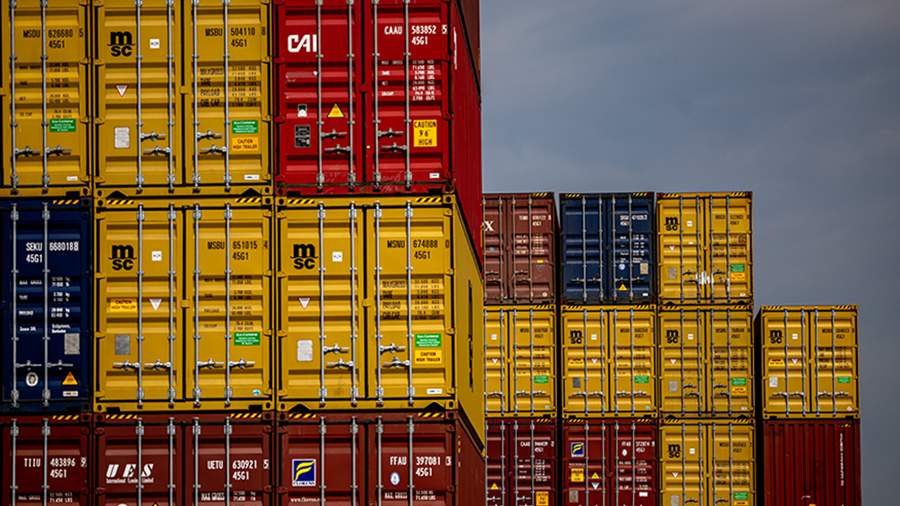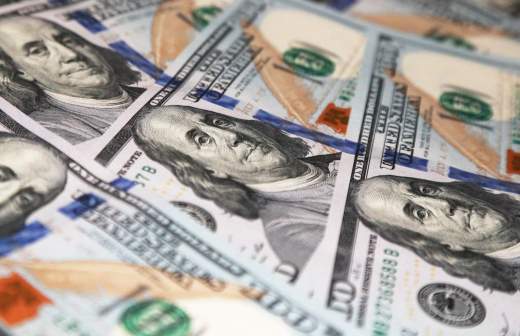The EU negotiates tariffs and promotes the climate agenda. What the media is writing

US President Donald Trump has postponed the imposition of 50% duties on European goods until July 9. However, Brussels and Washington have not yet been able to reach an agreement that would prevent a trade war. At the same time, the EU is paying more and more attention to the limitations of its resources, including water. How Western countries are trying to come to an agreement on the future of the global economy — in the Izvestia article.
AP: US and EU still can't agree on trade
Senior European Union politicians say they are actively promoting the idea of signing a trade deal with the administration of US President Donald Trump in order to avoid imposing 50% duties on their goods. The American leader had already threatened to impose tariffs on June 1, but postponed this decision until July 9.
AP
European policymakers are facing Trump's ever-changing and unpredictable tariff threats, but "nevertheless they will have to come up with something to hopefully appease him," said Bruce Stokes, visiting senior fellow at the German Marshall Fund in the United States. Stokes also believes that it's not just a matter of disagreements over the trade deficit. Trump's threats, in his opinion, are caused by dissatisfaction with the EU, which has little to do with trade."
Mary Lovely of the Peterson Institute believes that threats and abuse are Trump's way of negotiating. But, according to her, Trump's strategy increases the uncertainty of US policy. This, in turn, paralyzes the business. The expert noted that such a policy creates the impression that the United States is an unreliable trading partner that acts on a hunch, not according to the law.
CBS News: Trump's decision to postpone duties against the EU affected the stock market
The decision of the US president to postpone the imposition of a 50% duty on goods from the European Union led to the fact that the main indexes closed with growth. Thus, the S&P 500 index rose by 119 points, or 2.1%, closing at 5,922 points (this index reflects the value of the 500 largest companies in the United States, so its growth indicates an overall increase in the value of these companies. — Ed.).
CBS News
Initially, Trump threatened to impose 50% duties on the EU from June 1. This news, announced by the president on Friday in a Truth Social message, sent stocks tumbling as investors braced for even more uncertainty.
However, after Trump announced that he would postpone the imposition of duties on EU goods from June 1 to July 9, investors watched the market situation with great enthusiasm. Analysts noted that the temporary nature of the US president's tariff policy has been a key factor in market volatility in recent weeks. At the same time, experts say that the president's actions may be part of his overall strategy to conclude new deals.
FT: The EU is preparing a plan to reduce water consumption by 10% due to drought
The European Commission is developing a plan that will include reducing EU water consumption by 10% by 2030 due to drought. Countries will also be advised to increase investments in wastewater treatment infrastructure. The document will be published in June this year. It will be the first attempt by the European Commission to set targets for efficient water use.
FT
According to the officials who are developing the document, the EC will recommend investing €23 billion in water supply infrastructure every year. This initiative shows the concern of the EU member states about the dwindling groundwater reserves in the EU. According to EarEau, a water supply organization, about 25% of the EU's water is lost due to leaking pipes. But in some countries, such as Bulgaria, about 60% of water is lost annually.
The European Commission estimates that €23 billion is needed annually to properly finance water infrastructure, according to officials involved in the development of the water supply plan. The European Investment Bank will also develop a loan and guarantee program worth €15 billion to finance water infrastructure from 2025 to 2027, the document says.
Bloomberg: EU may reach emissions reduction target by 2030
The member states of the European Union are approaching their ambitious goal of reducing greenhouse gas emissions by at least 55% by 2030.
Bloomberg
The European Commission said that over the past few years, national governments have improved plans to reduce environmental pollution and develop renewable energy sources. If EU and domestic measures are fully implemented in the coming years, the region will reduce net emissions by about 54% by the end of this decade compared to 1990 levels.
At the same time, the previous EU report for December 2023 predicted a figure of 51%. This positive trend in the field of ecology is taking place despite the fact that European governments are increasingly relegating climate policy to the background. Investments in energy transition projects fell by 7% in 2024 to $375 billion.
Politico: Brussels will propose a deadline to reduce emissions
The European Commission will propose to countries to reduce by 90% carbon dioxide emissions by 2040, which lead to a warming of the planet. At the same time, the union will provide "flexible options" to make this goal politically acceptable. The head of the European Commission on Climate, Teresa Ribera, warns against excessive blurring of goals on environmental issues.
Politico
"We stick to 90%," Ribera said. She added that this goal takes into account requests for a "pragmatic approach" and for concessions from European governments.
After Ribera took office last year, EU President Ursula von der Leyen and EU Climate Commissioner Vopke Hoekstra promised to set a milestone for the bloc in 2040, when emissions should be 90% below 1990 levels. However, the countries of the union began to resist, which is why the announcement of this goal was postponed. Now, according to Ribera, the countries of the association must ensure that they adhere to a unified position on this issue.
Переведено сервисом «Яндекс Переводчик»




